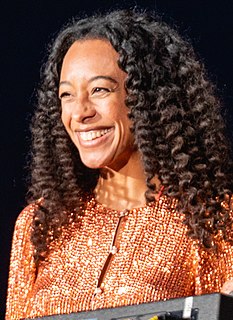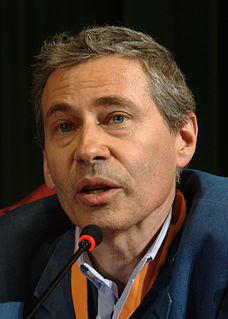A Quote by Dan Chaon
I guess I'm curious about how people process grief and how they process loss. And I'm also interested in the ways in which an event can have long-reaching consequences and a life over the course of years.
Related Quotes
I think grief is a huge subject; it's one of the things that everybody is going to confront in one way or another. There's been a lot of books written about how Americans have an odd way of trying to defer grief or minimize the need to grieve. People used to have a lot more ritual grief in their lives. For the most part, we think of it as a strictly temporal process: you grieve for a time and then you're over [it], but it's also a spatial process. It travels across a map.
Grief is not just a series of events, stages, or timelines. Our society places enormous pressure on us to get over loss, to get through grief. But how long do you grieve for a husband of fifty years, a teenager killed in a car accident, a four-year-old child: a year? Five years? Forever? The loss happens in time, in fact in a moment, but its aftermath lasts a lifetime.
Loving the process. I learn it over and again and in different ways. I'm speaking particularly to the musical process, but I definitely think that this lesson transcends. Loving the life process. Loving the process of becoming stronger by experiencing something that makes me feel unsteady. The process of speaking and living my truth and making my own path.
We know little of the consequences of the geoengineering process, such as spraying particles into the atmosphere that shade the planet from the sun's rays and could decrease its temperature. But this process is how dinosaurs disappeared from the Earth about 60 million years ago, by particles spewed by a volcano or a giant meteorite impact, and our species could follow suit.
Grief is real because loss is real. Each grief has its own imprint, as distinctive and as unique as the person we lost. The pain of loss is so intense, so heartbreaking, because in loving we deeply connect with another human being, and grief is the reflection of the connection that has been lost. We think we want to avoid the grief, but really it is the pain of the loss we want to avoid. Grief is the healing process that ultimately brings us comfort in our pain.
The Dalai Lama once said that every human being has two fundamental desires: to be happy and free of pain. I'm interested both in helping people and myself achieve these and also, in the process, finding out what our full potential is as human beings. In essence, there's so much unconsciousness about how/what we eat and how we live which creates the problems that people face. I see so many sick and suffering people when I go on my lecture tours and, if I can help someone find their way back to a life worth living, that's a good day's work.
I don't think people have fully processed how deeply television has changed the political process in our own world. Political parties have become vestiges of what they were and individuals with large amounts of money can leapfrog over that process, which can have a positive mediating effect. And so I think there are things to worry about.
I heard, one of my producers told me this story where like the Hollywood studios brought all these high-end consultants in to try to figure out how to improve their process and make films more efficiently, and these consultants like studied the process for years and finally came up with this report they put together about how studios can improve the efficiency of their process, and the conclusion was "have the script ready by the time you're shooting.
I think what is probably hard for people to imagine is how wrapped up the 17 years' work on Harry Potter is with what was going on in my life at the time. I was mourning the loss of this world that I had written for so long and loved so much. I was also mourning the retreat it had been from - from ordinary life, which it has been. And it forced me to look back at 17 years of my life and remember things.





































